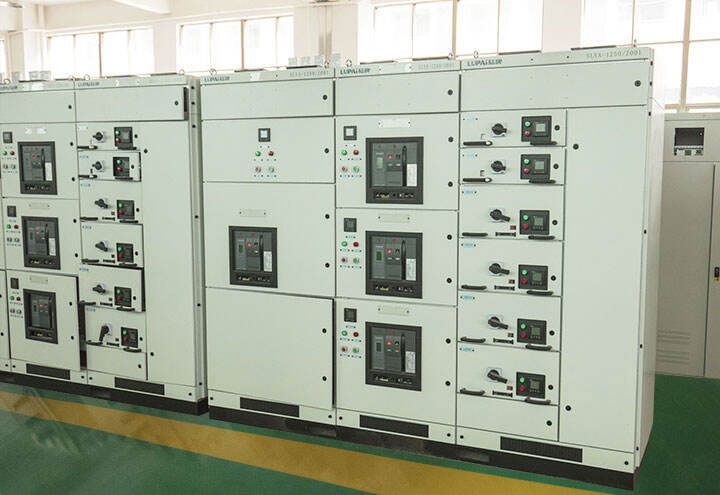How to Choose the Right Commercial Electrical Panels for Your Business
A commercial electrical panel is a very important power box for any business. It ensures everything runs safely and well. Picking the right commercial panel is key. This guide explains what these panels are and what to look for when choosing one.
Understanding Commercial Electrical Panels
Definition and Purpose
What powers your entire business? Usually, it's a commercial electrical panel. Think of it as the main power center for your building—a strong metal box, often in a utility room.
Its main job is to take electricity from the power company and send it safely to all circuits. These circuits power your lights, computers, machines, and other electrical items. A commercial panel also keeps things safe with circuit breakers, which are special switches. They protect wires and machines if there's too much electricity or a short circuit. A faulty commercial electrical panel can cause big problems, like fires or broken machines.
Importance in Business Operations
A good commercial electrical panel is vital for your business to run smoothly and safely. Here’s why:
- Keeps Power On: It ensures you always have electricity. If your panel is too small or old, power might go out often.
- Keeps People Safe: A good panel prevents electrical fires and protects everyone in the building from shocks.
- Protects Your Stuff: Businesses have expensive machines and computers. The panel helps protect them from power issues.
- Saves Money: When power is out, your business loses money. A good commercial electrical panel helps prevent this.
- Follows the Rules: Buildings must follow electrical safety rules. A correctly installed panel helps meet these rules.
Types of Commercial Panels
There are different kinds of commercial electrical panels for various needs.
Main Breaker Panels
This is the main power control for your building, where the big power line from the electric company connects. It has a main switch to turn off all building power, important for emergencies or big repairs. Inside, it sends power to smaller switches, each protecting a specific circuit, like office lights. These panels are often part of bigger switchgear systems; for a deeper understanding, explore our comprehensive research report on electrical switchgear.
Subpanels
Sometimes businesses grow or need more power in one area, requiring a subpanel. A subpanel is like a smaller, extra electrical panel. It gets power from the main panel and sends electricity to a specific area, like a new office or kitchen. Subpanels help keep wires organized and allow for future additions. Different kinds of Low Voltage Switchgear can be used as subpanels.
Specialty Panels
Some businesses need special panels for certain jobs. For example:
- Panels for big air conditioners.
- Panels that switch to a backup generator if the power goes out. These are very important for places with their own Substations.
- Panels for green energy, like solar power.
Factors to Consider When Choosing a Panel
Picking the right commercial electrical panel means thinking about a few important things:
Power Requirements (Load Calculation)
This is very important. A panel that's too small will cause problems; one that's too big costs too much. You need to figure out how much electricity your business uses. Consider the amps, volts, and type of power for all your equipment.
Also, plan for the future. If your business might grow, get a commercial panel with extra space. Sometimes, power goes through Transformers first to change the voltage. An electrician can help determine the right size.
Available Space and Configuration
The panel needs a safe, accessible spot that meets safety rules.
- Size: Make sure there's enough room for the panel.
- Clearance: You need to leave open space around the panel for safety.
- Mounting: Panels can hang on a wall or be built into it.
Budget Considerations
The cost of a commercial electrical panel includes the panel, electrician fees, and other parts like breakers and wires. Prioritize safety and quality over the lowest price. A cheap commercial panel could lead to more expensive problems later.
Installation and Maintenance Considerations
Proper installation and care of your commercial electrical panel are very important.
Professional Installation Services
Putting in a commercial electrical panel is tricky and can be dangerous. A licensed commercial electrician should always do this.
- Safety: Professionals know how to work with electricity safely.
- Compliance: Electricians make sure everything follows electrical rules.
- Correct Sizing: They check that the panel is the right size and set up correctly.
Regular Maintenance Practices
Your commercial electrical panel needs regular check-ups to work well.
- Inspections: Have an electrician check it sometimes. They'll look for hot spots, loose wires, and test the Circuit Breakers.
- Accessibility: Keep the area around the panel clear.
- Labeling: Make sure all circuits are clearly labeled.
- Warning Signs: If lights flicker, breakers trip often, or you smell something funny near the panel, call an electrician right away.
Good care helps your commercial panel last longer and keeps everyone safe.
Conclusion and Final Recommendations
Choosing, installing, and caring for the right commercial electrical panel is vital for a safe, successful business. This box is the heart of your electrical system.
Remember these key things for your commercial panel:
- It's needed for safe power.
- Know the types: main panels, subpanels, often part of switchgear.
- Think about your power needs, space, and budget.
- Always get a pro to install it.
- Check it regularly, including its Circuit Breakers.
A well-chosen commercial electrical panel is a smart move for your business. If you need help, ask an expert electrician.

